1. “Lola” by The Kinks
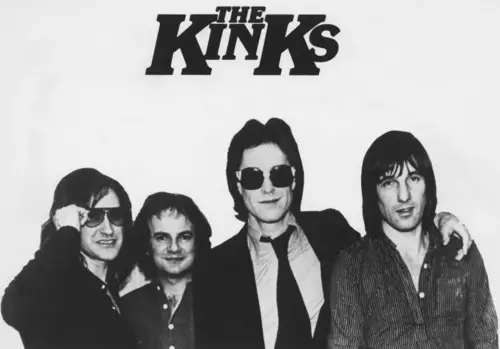
The Kinks sparked a mix of curiosity and controversy with “Lola,” a song that openly touched on themes of gender identity and fluidity. Released in 1970, the track tells the story of a man who unknowingly falls for someone who doesn’t fit traditional gender expectations. At a time when LGBTQ+ topics were rarely discussed in mainstream music, the song pushed boundaries and got people talking. While some praised its boldness, others deemed it too provocative. Regardless, it became a defining anthem that showcased The Kinks’ knack for storytelling while nudging listeners to question societal norms.
2. “Imagine” by John Lennon
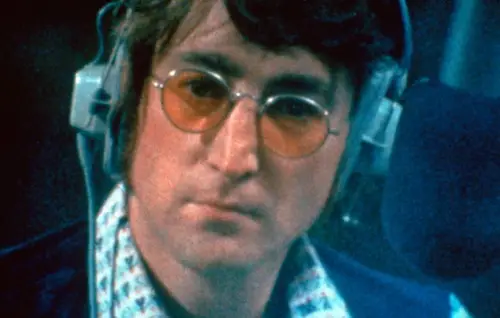
It’s hard to imagine (pun intended) a song as iconic and divisive as John Lennon’s 1971 anthem. “Imagine” called for a world without borders, possessions, or religion, an idea that resonated deeply with some but alarmed others. Critics accused Lennon of promoting anti-religious and utopian ideals, while fans saw the track as a dream of peace during an era of war and political unrest. Ironically, despite its message of harmony, the song sparked fierce debate and remains a polarizing masterpiece. Still, it endures as one of the ’70s most recognizable and discussed songs.
3. “Brown Sugar” by The Rolling Stones
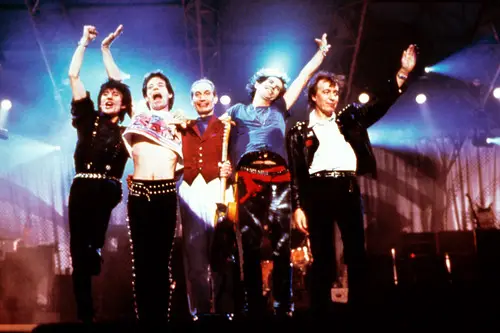
The Rolling Stones were no strangers to pushing limits, and “Brown Sugar” is a prime example of their provocative approach. Released in 1971, the song’s upbeat rock sound masked its controversial lyrics about race, slavery, and sexual exploitation. Critics argued that the themes were insensitive and objectifying, while fans pointed to the band’s edgy, rebellious spirit. Mick Jagger himself later admitted to feeling uneasy about the song’s subject matter. Yet, despite its contentious nature, it topped charts and cemented itself as one of the Stones’ biggest hits.
4. “Cop Killer” (Predecessor: “I Shot the Sheriff” by Eric Clapton)
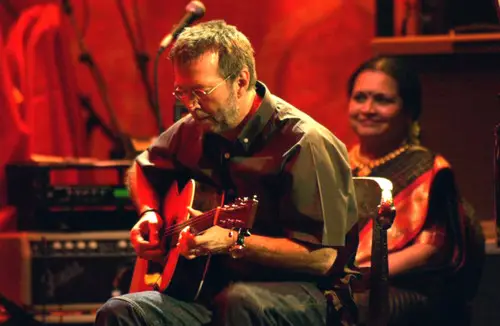
While Ice-T’s “Cop Killer” stirred the ’90s pot, its spiritual predecessor, Clapton’s 1974 cover of Bob Marley’s “I Shot the Sheriff,” wasn’t without its own controversy. Clapton brought the reggae protest song to mainstream rock audiences, but the lyrics — confessing to shooting law enforcement — rattled listeners. Some critics argued it promoted violence, while others praised it as a powerful metaphor against systemic oppression. Adding fuel to the fire, Clapton’s personal views and past incidents would later shadow his career, further intertwining him with the song’s turbulent legacy.
5. “The Pill” by Loretta Lynn
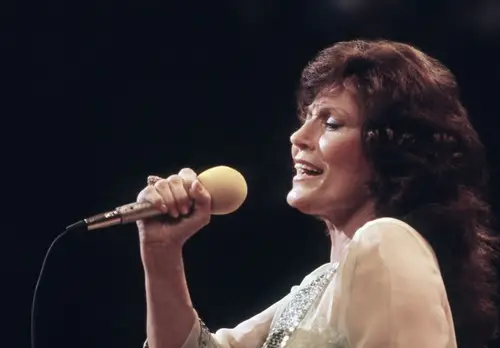
Country music legend Loretta Lynn was never afraid to speak her mind, and her 1975 hit “The Pill” proved it. Tackling the taboo subject of birth control, the song gave women’s reproductive rights a voice in a genre steeped in tradition. At a time when the feminist movement was gaining momentum, Lynn’s lyrics about a woman reclaiming control over her body were both empowering and shocking. Conservative listeners criticized the track, leading to some radio stations banning it. Nevertheless, “The Pill” became an anthem for women’s autonomy and cemented Lynn as a country music trailblazer.
6. “Walk on the Wild Side” by Lou Reed

In 1972, Lou Reed invited listeners to “Walk on the Wild Side,” and many were shocked at what they heard. The song chronicled the lives of Andy Warhol’s Factory crowd, openly addressing topics like gender nonconformity, sex work, and drug use. Reed’s laid-back delivery masked the provocative nature of the lyrics, making it all the more daring for radio play. While the song faced backlash for its subject matter, it also earned praise for its raw honesty and vivid storytelling. It remains a landmark track in Reed’s career, capturing the gritty, underground side of the ’70s.
7. “God Save the Queen” by Sex Pistols
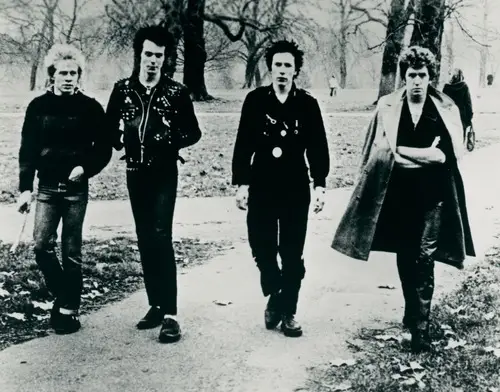
The Sex Pistols were punk rock’s ultimate agitators, and their 1977 anthem “God Save the Queen” stirred up a cultural firestorm. Released during Queen Elizabeth II’s Silver Jubilee, the song condemned the monarchy as a “fascist regime.” It was banned by major radio stations, yet still climbed the charts, much to the establishment’s dismay. For some, it was an act of rebellion and a voice for the disillusioned working class; for others, it was downright unpatriotic. Either way, the Sex Pistols made their mark as one of music’s most controversial acts.
8. “Only Women Bleed” by Alice Cooper
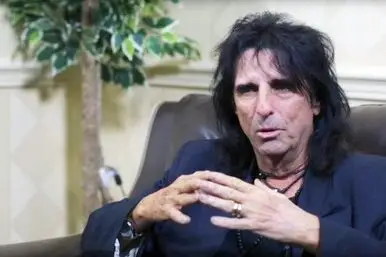
Alice Cooper shocked audiences in 1975 with “Only Women Bleed,” a song that addressed domestic abuse — a topic rarely discussed in rock music at the time. Despite its title causing initial misunderstandings (many assumed it was about menstruation), the song’s lyrics revealed a powerful commentary on women trapped in abusive relationships. Critics praised Cooper for shedding light on such a serious issue, but some listeners found it uncomfortable or even exploitative. Over time, the track has been recognized for its bold message and remains one of Cooper’s most impactful songs.
9. “Black Sabbath” by Black Sabbath
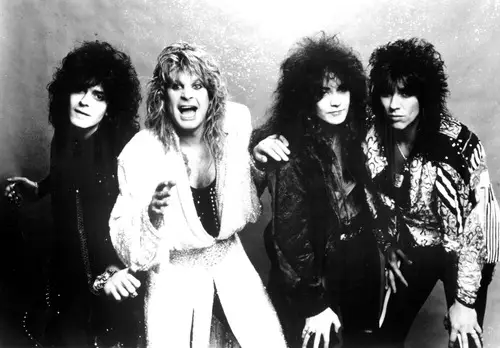
The song that gave Black Sabbath their name and defined heavy metal, “Black Sabbath” (1970), terrified listeners with its dark, occult themes. From its ominous tritone riff to Ozzy Osbourne’s chilling vocals, the track conjured up images of black magic and Satanic rituals. Religious groups accused the band of promoting devil worship, sparking protests and bans in conservative circles. For fans, however, it was groundbreaking — a musical embodiment of societal fears and countercultural rebellion. The song paved the way for heavy metal’s enduring fascination with the macabre.
10. “Bohemian Rhapsody” by Queen
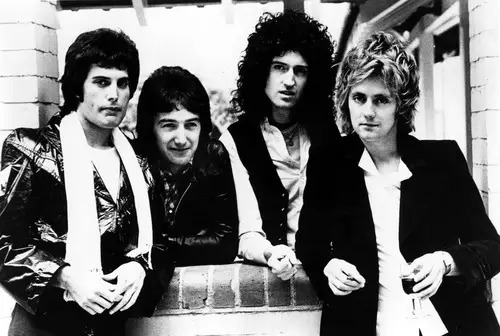
Queen’s operatic masterpiece “Bohemian Rhapsody” (1975) wasn’t just controversial for its unconventional structure — it also left listeners scratching their heads over its cryptic lyrics. The song’s references to “Beelzebub” and murder prompted speculation about its meaning, with some accusing it of promoting dark or occult themes. Freddie Mercury remained tight-lipped about the song’s origins, fueling further intrigue. Despite the controversy, its ambition and uniqueness captivated audiences, cementing Queen as one of the most innovative bands of all time.
11. “Fight the Power” by The Isley Brothers
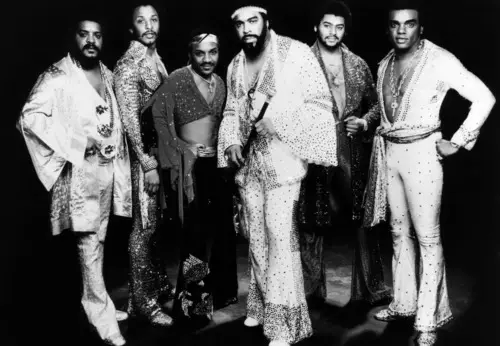
Long before Public Enemy redefined the phrase, The Isley Brothers released their own “Fight the Power” in 1975. The song was a bold rallying cry against societal and racial injustices, and its confrontational lyrics didn’t sit well with everyone. Critics called it aggressive and provocative, but for many listeners, it became a powerful anthem of resistance. Its funk-driven sound and unapologetic message showcased The Isley Brothers’ ability to combine groove with social consciousness, making it a defining track of the decade.
12. “Love to Love You Baby” by Donna Summer
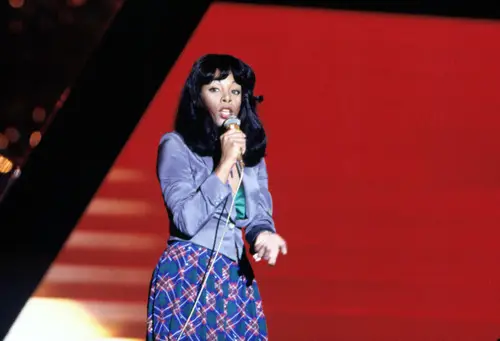
Disco queen Donna Summer turned heads in 1975 with “Love to Love You Baby,” a sultry track that pushed boundaries with its suggestive vocals and sensual tone. Summer’s breathy delivery raised eyebrows, with some calling the song too explicit for radio. Conservative groups were quick to criticize, but the track’s hypnotic groove made it a massive hit, solidifying Summer as a disco icon. It remains a prime example of the era’s shifting attitudes toward sexuality in music.
13. “Rock and Roll All Nite” by KISS
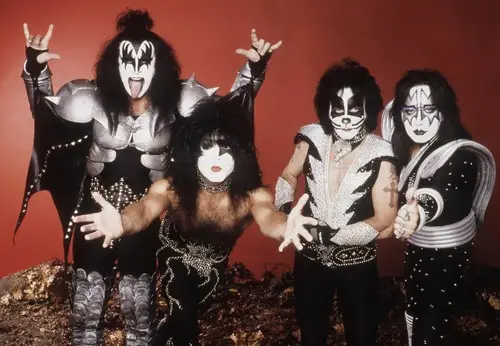
KISS’s 1975 anthem “Rock and Roll All Nite” wasn’t lyrically controversial, but its connection to the band’s shock-rock image made it a lightning rod for criticism. Parents and religious groups were outraged by KISS’s theatrical stage shows, complete with fire breathing, makeup, and tongue-wagging antics. The song’s celebration of hedonism and rock ‘n’ roll excess only added fuel to the fire. While critics dismissed the band as a gimmick, fans embraced KISS as rock gods who knew how to deliver a spectacle.


